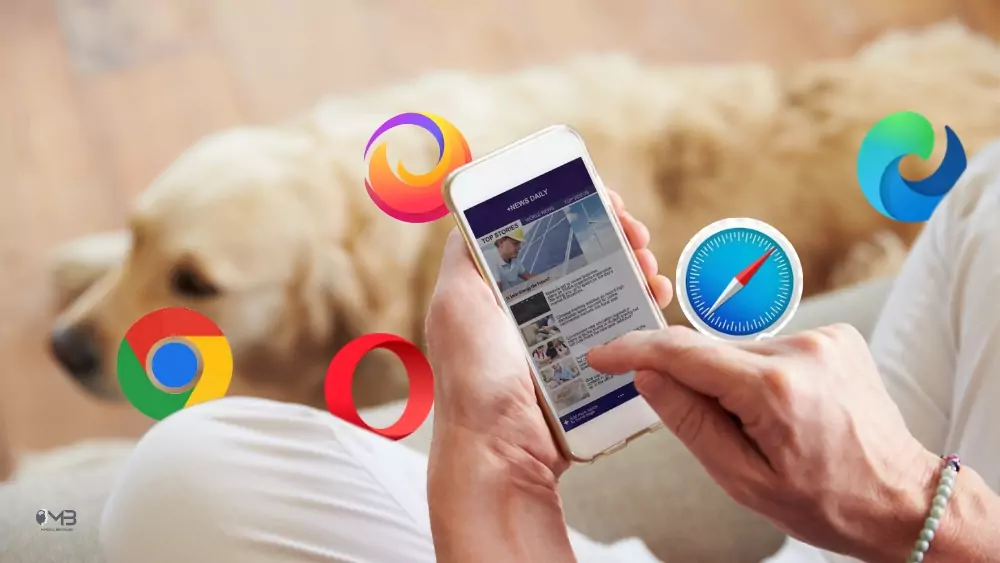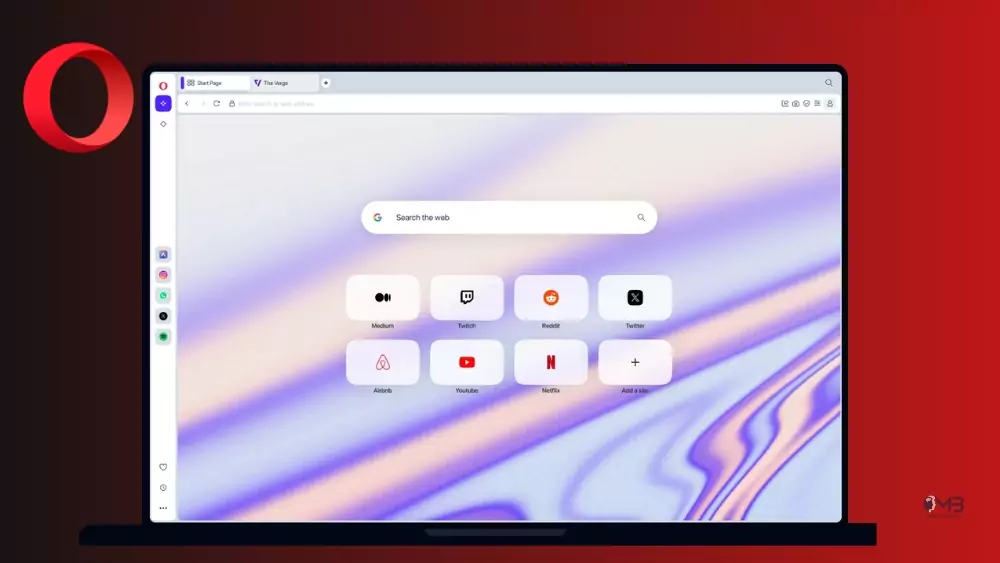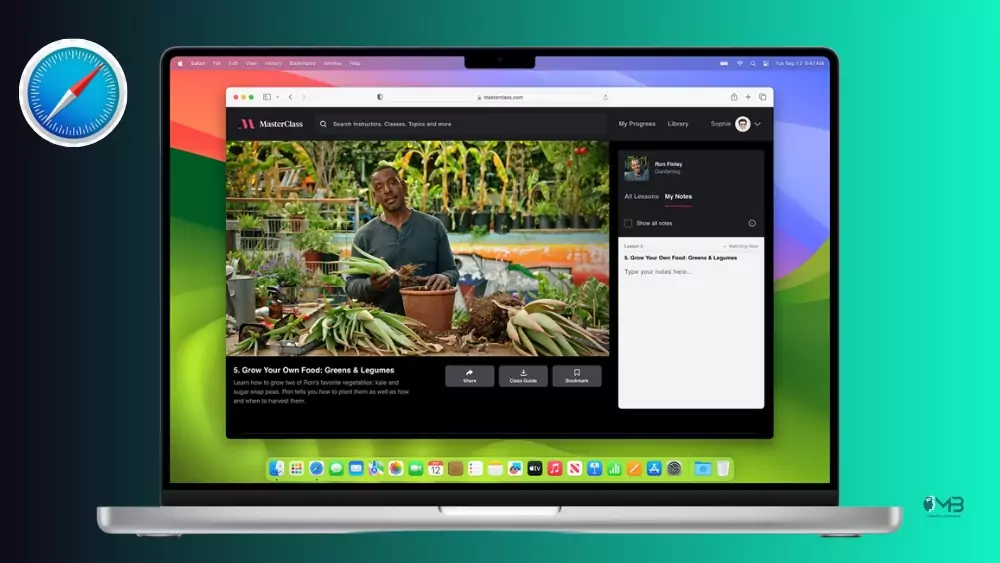
An average person spends around 6 hours and 40 minutes a day surfing the internet on their mobile phones, equating to 101 days a year. That’s quite a lot of time to be spent on less-than-best browsing apps!
Browsing apps are the gateway to access the internet on your smartphone or tablet. So, the best browser is the one that’s fast, customizable, and intuitive. With our lives increasingly intertwined with the digital world, the right browser can significantly enhance our online experience.
It’s time to bid farewell to sluggish loading times, cluttered interfaces, and frustrating searches. Let’s explore a selection of top-tier browser apps that promise to one-up your internet journey.
What Is The Best Web Browser? Top Picks!
Here are the top 5 best internet browsers for Android and iPhone. Whether you prefer cross-device syncing or have a knack for customized interfaces, there is a browser that suits your needs. Let’s have a look.
1. Google Chrome – Best Overall

Available on: Android, iOS
Ratings: 4.3
No. of users: 5.4 Billion
Fun Fact: Google has Easter Eggs, which are a collection of hidden jokes and funny messages that you can insert in the search bar and interactively play on your browser.
Google Chrome stands out as the best browser of 2024 for its speed, user-friendliness, and cross-device compatibility. It holds 64.87% of the market share, the largest among internet browsers. It is even more for mobile users—around 65.33%—making it a default choice for millions. Chrome has maintained its dominance for many years now. No other browser was able to come anywhere near it.
This top-rated web navigator seamlessly integrates with your Google account. So you can easily access your emails, photos, and more. Plus, all your bookmarks, passwords, and settings get synced across multiple devices you use. The extensive extension library is one of the users’ favorite features of Google Chrome. There’s an extension for everyone, from productivity assistants to boost efficiency to site blockers to avoid watching negative things online.
| Pros | Cons |
| Easy-to-use and clean interface | Serious privacy concerns |
| Fast, free, and secure | Needs a significant amount of RAM |
| Seamless integration of other Google services | Do excessive user data collection |
Also Read: Best gratitude apps to build happiness and positive mindset.
2. Firefox – Best For Security

Available on: Android, iOS
Ratings: 4.5
No. of users: 155 Million
Fun Fact: Firefox was initially named Phoenix but later changed to Firefox due to trademark concerns.
Looking for new web browsers that prioritize your online security? Mozilla Firefox is a top contender. Firefox blocks online trackers and safeguards your data with Enhanced Tracking Protection and Total Cookie Protection. Plus, Firefox is fast, reliable, and customizable.
It loads pages quickly and gives a smooth and responsive browsing experience. Most of my colleagues prefer using the Mozilla browser to access social media apps because it supports them better than other browsers.
| Pros | Cons |
| Strong protection against spying and malware | Slow speed than its competitors |
| Secure and reliable | Not compatible with a wide range of devices |
| Offers advanced 3rd-party tracking protection | – |
3. Microsoft Edge – Best For Helpful Features

Available on: Android, iOS, and Windows
Ratings: 4.6
No. of users: 263 Million
Fun Fact: Microsoft Edge is the best browser for web gaming. It gives you free access to tons of games.
Microsoft Edge is rapidly becoming a top contender in the “best web browser to use” race. This innovative app boasts a growing market share of 5.26%, placing it third globally. It offers an array of incredible features, including a built-in VPN and Enhanced Tracking Protection.
The AI-powered Copilot, Bing, helps you navigate tasks with ease. Plus, Microsoft is working on making Edge one of the fastest web browsers, making its user interface 42% faster than before. Need to organize your research? Vertical tabs keep things tidy. Capture webpages effortlessly with the built-in screenshot tool, or even have Edge read PDFs aloud for a hands-free experience.
| Pros | Cons |
| Strong integration with Microsoft services (e.g., OneDrive, Microsoft 365) | Limited extension support compared to other browsers |
| Enhanced security features, including tracking prevention and SmartScreen | The user interface may not be as intuitive or appealing |
| Fast performance and efficient resource usage | Occasional stability issues, including crashes on lower-end hardware |
4. Opera – Best For Customization

Available on: Android, iOS
Ratings: 4.4
No. of users: 350 million
Fun Fact: Opera’s “Workspace” feature allows you to separate your tabs into different categories, like work, social, or entertainment.
Opera is known for its extensive customization options that create a personalized browsing experience. You can choose from tons of artistic themes, tweak the side toolbar, and create a speed dial for your favorite sites. This way, users can see only what they exactly want to see in the Opera browser.
But, Opera goes beyond aesthetics. It features a built-in ad blocker and a free VPN for added security. You can also download the Block Site extension to block unwanted sites on Android. Opera allows you to download Chrome extensions alongside its own library. Moreover, it has a built-in AI assistant, Aria, that helps users answer questions, summarize content, and generate ideas.
| Pros | Cons |
| Built-in tools like a free VPN, ad blocker, and tracker blocker for enhanced privacy | Limited extension library |
| Lightweight design ensures quick startup and a smooth browsing experience | Limited integration with services compared to Edge |
| Innovative features like Speed Dial for easy access to frequently visited sites | Some desktop features absent in the mobile browsing app |
5. Safari – Best For iOS Users

Available on: iOS
Ratings: 4.3
No. of users: 984 million
Fun Fact: You can see all the opened tabs across your devices with Safari’s “iCloud Tabs”
Safari is the win for seamless browsing on Apple devices! This web navigator browser boasted a market share of 14.45% in 2023, making it a favorite among Apple users. It is perfectly integrated into your Apple ecosystem, providing faster load time and a sleek interface for Mac, iPhone, iPad, and Apple Watch.
Safari protects your privacy with intelligent tracking prevention and a built-in ad blocker to shield you from online trackers and clutter. Plus, it allows you to organize your browsing through tab groups. You can also take full-page screenshots and watch videos on a floating window. Safari delivers a secure, efficient, and user-friendly browsing experience.
| Pros | Cons |
| Optimized for Apple devices, including macOS and iOS | No availability on non-Apple platforms (Windows, Android) |
| Energy-efficient, which can extend battery life on laptops and mobile devices | Fewer extensions available compared to Edge and Opera. |
| Strong privacy features, such as Intelligent Tracking Prevention |
Browser Apps Not To Use
While most of the browsing apps are safe and easy to use, there are some that you should avoid. These browsers have security flaws and privacy concerns and are not a good option for users who prioritize safety.
1. UC Browser
UC Browser is notorious for its security loopholes, including a significant address bar vulnerability that exposes users to phishing attacks. It transmits personally identifiable information (PII) without proper encryption, making it susceptible to data breaches. Reports indicate that the UC Browser has been flagged for insecure data transmission practices, raising serious privacy concerns.
2. Baidu Browser
Baidu is another web browser with a poor reputation for privacy, as it collects extensive user data. Its Chromium-based architecture also exposes it to vulnerabilities similar to those found in Chrome, making it unsafe for secure browsing.
3. Yandex Browser
This Russian-developed browser is known for extensive data collection, including personal information and browsing habits. While it offers some security features, there is a lack of transparency and a risk of privacy violations. Its potential connection to the Russian government also offsets many users.
Conclusion
The digital edge is evolving dramatically. So, you need a browsing app that not only zips through the web but also protects your privacy. Google Chrome is an unbeatable contender in the race for the best browsers, but other browsers also offer unique strengths. The best browser depends on your specific needs. Consider factors like speed, privacy, customization, and compatibility when making your choice. Don’t hesitate to experiment with different browsers to find the perfect fit.
Read More: Healthy Digital Habits
